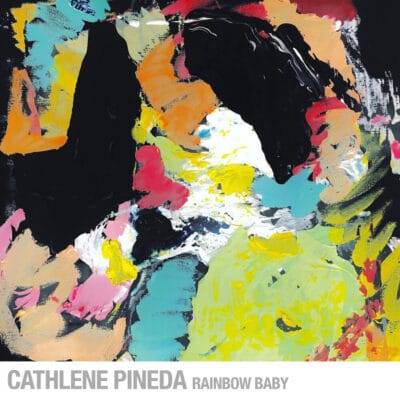Cathlene Pineda Rainbow Baby
Cathlene Pineda
Rainbow Baby
Orenda
This is the third album, and by far the most personal, for pianist/composer Cathlene Pineda, who leads a quartet on Rainbow Baby. The theme comprises four years of motherhood, pregnancy. Loss, and ultimately love. She was thriving at the time of her second album, Passing: A California Suite, which was commissioned by the Los Angeles Jazz society and premiered at the Angel City Jazz Festival at the REDCAT theater. Around this time, her first child was born, and she put her performance schedule on hold but returned to performing relatively soon, only to find herself beset with two miscarriage, which, of course, triggered all kinds of emotions. She did manage to successfully birth a daughter in January of 2019 and is now the mother of two children.
These experiences led Pineda to begin composing these tunes after her second miscarriage, finishing them after her daughter was born. Raised as a classical pianist, she graduated from the rigorous The Mannes College in New York (part of the New School). She applied to CalArts in southern California to further her musical education, attaining a master’s degree and subsequently working with artists such as Charlie Haden, Bobby Bradford, Wadada Leo Smith, and others including trumpeter Kris Tiner, who plays with remarkable poignant expression in this quartet often as its lead voice. Tiner is a composer, bandleader, founder of Epigraph Records and a CalArts graduate as is in-demand session drummer Tina Raymond and the well-versed film and ensemble composer, bassist David Tranchina.
The album begins with Tiner’s emotive trumpet on “1Nine” commemorating the birth of Pineda’s daughter but also a period when her father was in the ICU 1500 miles away, after suffering a strike and undergoing brain surgery. So, given the dichotomy of those emotions, it presents a challenge to Tiner and Pineda who navigate through them gorgeously, from the somber to the exuberant. Pineda says, “I heard all these different pieces in my mind, and somehow they fit together tot tell the story of the happiness we felt on the day my daughter was born, but also the deep weight we carried about my father’s health. For me the song represents our ability to celebrate life with all its joy and sadness.”
“Rainbow Baby,” refers to a baby born after a miscarriage or loss. This one, is appropriate lighter, more joyous in tone and showcases both Tiner and especially Pineda’s piano soloing, careful note choices while avoiding unnecessary showmanship. The tune is spiced with statements from both Raymond and Tranchina. As Pineda reveals more of her blue, complex psyche, she offers up “Milo,” about her son, written in sections to denote different sides of his personality, posing yet another emotional gauntlet to work through. Again, Tiner’s expressiveness against Pineda’s chords is simply beautiful, even when sad. “Wonder Weeks” is a loosely composed tune, filled with improvisation. The title refers to how a baby grows in the first year.
That’s followed by two suites that give the album cohesion (hasn’t sounded that way so far, you’re thinking). “Wild Geese II” and “Wild Geese IV” are inspired by the poem of the same name by Mary Oliver and have both Tranchina and Raymond more predominant than in the first half. Pineda’s piano intro on “II” is especially evocative. The other suite “Carriers I” and “Carriers II” is about being a mother and its weight of responsibility. Ranging from contemplative in the first, “II” reaches the most joyous moments on the album, a mood sustained in the closer, the melodically rolling “The Collective Memory,” originally written for a dance troupe.
Listeners don’t need to know the stories behind the songs to appreciate the emotional depth of Pineda’s work. It’s vividly apparent in her approach and especially in the pairing with Tiner, her perfect complement. Few albums, jazz or otherwise are as richly emotional and rewarding as this one.
- Jim Hynes
Discover more from Making A Scene!
Subscribe to get the latest posts sent to your email.









